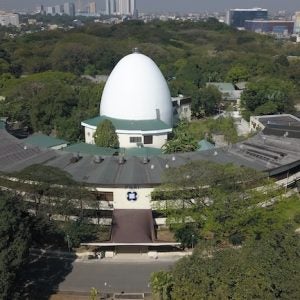 Units 3&4 at the Turkey Point nuclear plant in Florida are the first to be approved by the US Nuclear Regulatory Commission (NRC) to operate for up to 80 years after NRC approved Florida Power & Light's (FPL) application for a 20-year licence extension.
Units 3&4 at the Turkey Point nuclear plant in Florida are the first to be approved by the US Nuclear Regulatory Commission (NRC) to operate for up to 80 years after NRC approved Florida Power & Light's (FPL) application for a 20-year licence extension.
Turkey Point 2&3 are now licensed to operate until 2052 and 2053, respectively. The two 729MWe pressurised water reactors began commercial operation in 1972 and 1973 and were initially licensed to operate for up to 40 years. NRC renewed their licences for a further 20 years in 2002. FPL submitted a subsequent licence renewal application for an additional 20 years of operation in January 2018. “This is the first time the NRC has issued renewed licences authorising reactor operations from 60 to 80 years,” NRC said in a statement.
Under the US Atomic Energy Act, NRC is authorised to issue licences for commercial power reactors to operate for up to 40 years – a period it says was based on economic and antitrust considerations, rather than limitations of nuclear technology.
Licences can be renewed for a further 20 years in a process that requires applicants to address the technical aspects of plant ageing and describe how those effects will be managed, as well as to evaluate potential environmental impacts of the plant's continued operation.
Subsequent 20-year licence renewals focus on the management of plant ageing during the 60-80 year operating period, especially the effects of extended operation and high radiation exposure on reactor parts, concrete containment structures, piping and electrical cables, among other things.
Most US power reactors have already renewed or applied to renew their licences for up to 60 years of operation, and operators are now considering further renewals.
NRC is currently reviewing such applications from Exelon Corporation for Surry 1&2 and Dominion Energy for Peach Bottom 2&3. Dominion has also notified NRC that it intends to apply for a subsequent renewal for North Anna 1&2. The US Department of Energy notes some 20 reactors are planning or intending to operate up to 80 years, with more expected to apply in the future.
FPL, in a statement, said the licence renewals represent a major milestone after it made “significant investments in upgrades over many years”.
However, over the past few years, FPL has faced criticism and legal challenges over Turkey Point’s ageing cooling system, which comprises a canal network, from which water has leaked causing a large saltwater plume to encroach into the adjacent freshwater aquifer. This has resulted in state and county regulators accusing FPL of polluting the waters in Biscayne Bay. In 2014, the plant also had to deal with high temperatures in the canal system following a power uprate of the reactors. This triggered persistent algae blooms, which threatened to shut down the plant.
Since 2016, FPL has been under court order from the Florida Department of Environmental Protection to contain the plume and prevent contamination of the water supply within 10 years.
Photo: Turkey Point has been licensed to operate for 80 years






